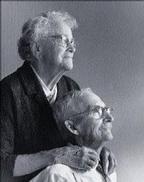Article
What you'll miss most--and least--about the 20th century
Author(s):
You'll lament your fleeting youth, and you long for the quainter, kinder days of medicine. But you won't miss the diseases that we've conquered, and you're hopeful that a new era will bring more cures for patients--and fewer hassles for doctors.
Goodbye or good riddance?
What you'll miss mostand leastabout the 20th century

You'll lament your fleeting youth, and you long for thequainter, kinder days of medicine. But you won't miss the diseases thatwe've conquered, and you're hopeful that a new era will bring more curesfor patientsand fewer hassles for doctors.
By Michael Pretzer, Washington Editor
Where does the time go? Seems like only yesterday we were ushering inY1K. Then came explorations and discoveries. Plagues and wars. An economicrevolution now and again. Suddenly almost 1,000 years have slipped by, andwe're at the dawn of Y2K.
Will changing of millennia be a moment to be forever remembered? A gargantuanhistoric event? A cosmic phenomenon of the highest order?
Not exactly.
As a number of levelheaded Medical Economics readers have remindedus, come Y2K+1 the earth won't stop rotating. The seas won't part. Greattruths won't be revealed. So dispense with the unrealistic expectations,they urge. And stop with the apocalyptic talk.
"Our problems will be the same," says an FP in Minnesota. "Onlythe date will change."
Let's dispel our earthshaking fears, too. "Despite the Y2K panic,the sun will come up on Jan. 1, 2000, and we'll all be able to see it,"says a pulmonologist from a 12-physician group in Iowa.
Some readers argue that the millennium celebration has been wrong fromthe get-go. Technically, they note, the next millennium doesn't begin untilthe first day of 2001.
Many other readers wish it would start tomorrowif only to put anend to the millennium hype. "It'll finally be over, thank God,"says a solo FP in New York state.
Despite their protestations, physicians across the country have takenthe occasion to reflect on the 20th and 21st centuries. A few months agoon this Web site, we asked you to "share a millennium moment with us."We asked you to look backward and forward in time. And you did.
The majority of physicians who responded to our call have witnessed afair share of the 20th century. Their years of medical experience reachwell into double digits, and some have recently retired. But we also receivedreplies from doctors who have just begun to practice, and from many in mid-career.
As you'd expect, most seasoned physicians have fond memories of bygonetimes. Many wouldn't mind going back to their good old days. Some talk ofa return in sepia-tone, Ronald Reagan-like terms; they long for a simplerlife, a slower-paced life, a small-town lifea life where freedom,optimism, individuality, and common sense predominate.
Others speak more personally. They'd like to watch their children growup again, to cheer anew for a beloved sports team that's moved to anothercity, or catch the concerts of favorite singers whose touring days are over.An ophthalmologist in New Jersey will miss "Frank Sinatra and Mel Torme,the Beatles, Leonard Bernstein, Broadway at its best, the Brooklyn Dodgersand New York Giants, and the old Tonight Show." A pediatricianout West simply longs for the days when Los Angeles wasn't crowded. A cardiologistin Missouri wishes the passenger train were still a dominant mode of cross-countrytravel. An Indiana cardiologist will miss "the sense of a slightlyslower pace, not having to be instantly available via cell phone or fax."
When asked what you'd miss most about the 20th century, many of you said,"My youth." An internist in New Jersey was more specific: "Myhair. The patch in the back of my head gets bigger with each stressful day."
We also wanted to know what you'd say good riddance to as the centurydraws to a close: "Polyester, penicillin injections, and open cholecystectomies,"declares a physician in Washington state. "My student loans,"sighs an FP in Pennsylvania. For a colleague on the West Coast, it's "sliderules and forceps deliveries," and for a GP in Michigan it's "hospitalpractice, which has become a zoo."
Highest on the good-riddance list was the Y2K hype itself, with PresidentClinton and the Beltway crowd earning more than a few mentions. To whatelse are you happy to bid adieu? The Cold War, racial segregation, polio,smallpox, smoking as an acceptable addiction, male domination of many fields."I'd like to say good riddance to prejudice, hate, and greed,"says an FP in Kansas, "but I'd settle for more kindness and helpfulness."
If you could catch time in a bottle, you would . . .
Most of you, however, talked about what you'd miss. Nearly all physiciansseem to long for medicine the way it was before managed care. "I'dlike to go back to the days when a patient had an insurance card, presentedit when he went to the doctor's office, and never heard about the bill,"laments a Massachusetts internist with more than 20 years in practice. "Now,he gets a statement from the insurance company showing the amount I charged,the amount the insurance company will allow, and the amount of his copayment."
An FP from Ohio baldly adds that the thing he misses most is "cashpayments for services rendered." But he's an anomaly; money isn't thebiggest concern of physicians annoyed by managed care.
Judging by your replies, physicians worry more that managed care haseroded the traditional doctor-patient relationshipthe face-to-facecontact, the intimacy, the timeand caused the public to lower itsopinion of the profession. "I miss the respect physicians had in thepast," says a general surgeon in Pennsylvania. Another adds, "Thegovernment and the media have tarred and feathered the vast majority ofphysicians because of the actions of a few bad doctors."
But the situation may not be as bad as you think. In 1998, the GallupOrganization asked the public to rate the "honesty and ethical standards"of various professionals. Physicians finished a respectable fourth out of28behind pharmacists, the clergy, and college professors, and wellahead of police officers, lawyers, and business executives. Fifty-sevenpercent of those polled said doctors had a "very high" or "high"code of conduct. Interestingly, in recent years the score for physicianshas been going upnot down. In 1994, only 47 percent of those polledby Gallup gave doctors a "very high" or "high" mark.
However, another recent survey from the Washington, DC-based EmployeeBenefit Research Institute, looks less kindly on physicians. In this report,the public sees doctors as participants, and not mere observers,in managed care's efforts to cut costs:
- Only 46 percent of the public are extremely or very confident that their physician's advice is based on patients' needs rather than on the cost of the care.
- Only 45 percent are similarly certain that their doctor has up-to-date information about medical conditions and medicines.
- Only 44 percent feel sure their doctor will advise them about all treatment options regardless of their plan's coverage.
In sharp contrast, nearly 75 percent are quite confident that their pharmacistwill fill their prescriptions properly.
You believe in science; it's people you're not sure about
Physicians are of two minds when they look at medicine's next century.They have positive thoughts about science and technology, and negative onesabout the delivery system, managed care in particular.
Overwhelmingly, doctors believe breakthroughs in the treatment of diseaseare on the near horizon. "The medical gains in the 20th century wereprimarily in diagnoses," asserts a radiologist in group practicein Ohio. "In the next century, there will be improved treatments,especially through the use of new medications and gene therapy."
"Gene therapy will eventually cure cancer. I really believe it willhappen during my lifetime," adds a California neurosurgeon who hasbeen practicing for 10 years. "Keep the research coming," cheersan FP in Pennyslvania.
In addition to improving the health of patients, doctors believe technologywill help relieve the headaches connected with practicing medicine. "Computertechnology will solve many of our problems, including billing and charting,"promises an internist in Pennsylvania.
While doctors seem delightedto the point of being giddyoverthe impact of science on medicine's future, only a few physicians speakwell of managed care. Some hope it will be a passing fancy. "It's aphase we're going through," explains a gastroenterologist who's beenpracticing for nearly 30 years and now heads a 170-physician group in Washingtonstate. "I don't know where we're headed, but I believe that managedcare as we know it now won't be the way we deal with health care economicsin the future."
"Managed care for profit is doomed to early extinctionin lessthan five years," boldly predicts a nephrologist with 32 years in practice.
Maybe. But most physicians aren't so sure.
"We're being forced to see too many patients too quickly,"says an FP in Indiana who's been in practice only two years. "We'rereally being squeezed, and unfortunately I don't see a solution. Soon we'llbe running factories."
"Managed care will be the death of real medicine," a cardiologistin New York state adds bluntly.
"I plan to retire by 2005," says a pediatric anesthesiologistwho has been practicing for only 10 years. "Physicians have becomeprogressively more fiscally driven, and I've become ashamed of most of them."
Others have a brighter view. A Louisiana ENT specialist who has beenin practice for 48 years, and whose grandson is just starting medical school,says, "I'm optimistic that medical students and young physicians willbegin to know more about the simple approaches of caring for patients, spendingtime with them and making proper diagnoses."
When physicians raise their sights beyond the practice of medicinewhenthey "think globally," as one physician puts itthey takecomfort in science but despair over the behavior of Homo sapiens. "Aswe enter the new century, I'm optimistic about technological advances,"says a Massachusetts internist. "But I'm pessimistic about human values."Similarly, a radiation oncologist in Texas has faith in "the abilityof science and technology" to solve daunting problems "such ashunger and epidemics." But he can only wish that science and technologycould "change human nature and solve the problems that strife produces."
Doctors fret over worldwide problems like hunger and malnutrition, overpopulation,threats to the environment, violence among nations, and moral decay. Theyworry about national issues, such as gun control, drug abuse, prejudice,and government overregulation.
But closer to home and hearth, pessimism gives way to optimism and worryturns to joy. "Generation X appears to have more compassion and civilsense," says a physical medicine and rehabilitation physician who'sbeen in practice 17 years. "They will lead us to a better world."
"I'm optimistic that my children will grow to be honest and hardworking,"adds an FP in North Carolina. More than a few of you feel it is especiallyimportant to transmit your values to your children and grandchildren.
"I hope to be a positive influence on the life of my family,"offers an Indiana FP. "But I'm sure the next 20 years are going tofly by. I wish there were a way to slow them down."
Already, Y3K seems just around the corner. Where does the time go?
Michael Pretzer. What you'll miss most--and least--about the 20th century.
Medical Economics
1999;24:80.





